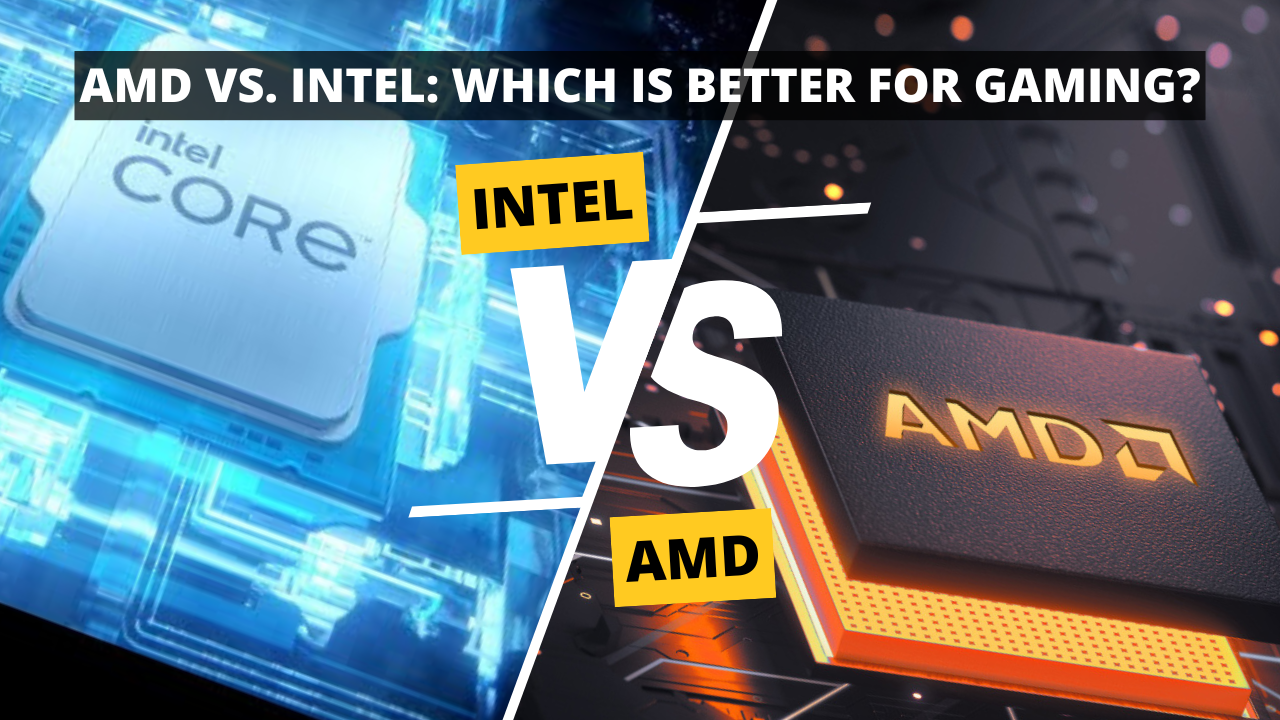The debate between AMD and Intel for gaming supremacy has been ongoing for years, with both brands offering a wide range of processors to meet different gaming needs. This guide examines the key aspects of their performance, pricing, and overall suitability to help you choose the best processor for your gaming setup.
Performance Comparison
1. Core Architecture
AMD’s Ryzen series, particularly the Ryzen 5000 and 7000 families, have set new standards in performance. With higher core counts, these processors excel in multi-threaded tasks. The Ryzen 9 5900X, for instance, boasts 12 cores and 24 threads, making it a powerful option for both gaming and productivity.
Intel’s 12th-generation Core processors, such as the Core i9-12900K, stand out with their hybrid architecture that combines performance and efficiency cores. Intel’s strong single-core performance continues to be a key factor in gaming.
2. Gaming Performance
AMD processors have demonstrated excellent results in gaming benchmarks, particularly at higher resolutions where the GPU often becomes the bottleneck. Games like Cyberpunk 2077 and Assassin’s Creed Valhalla showcase AMD’s competitive performance.
Intel has historically held an edge in single-core performance, giving it an advantage in certain gaming scenarios, especially with titles optimized for Intel architectures. However, AMD’s advancements have significantly reduced this gap.
Price and Performance
1. Cost Efficiency
AMD is a popular choice for budget-conscious gamers, offering excellent performance with its mid-range Ryzen 5 series at a lower price point.
Intel processors are generally more expensive but often include integrated graphics like Iris Xe, which can benefit users who do not plan to use a dedicated GPU.
Overclocking Capabilities
1. Overclocking Potential
Most Ryzen processors from AMD feature unlocked multipliers, making them ideal for enthusiasts who want to push performance beyond standard speeds.
Intel offers overclocking on its K-series processors, but users need a compatible Z-series motherboard to fully utilize this capability.
Power and Thermal Management
1. Heat Management
AMD’s latest architectures are more thermally efficient than before but can still produce significant heat under heavy loads. A high-quality cooling solution is recommended.
Intel processors tend to run cooler under similar conditions, which results in quieter operation in systems with effective cooling.
Upgrade Options
1. Future-Proofing
AMD’s AM4 socket supports several Ryzen generations, providing a cost-effective and convenient upgrade path for users.
Intel frequently changes socket types, such as moving from LGA 1200 to LGA 1700, which often necessitates purchasing a new motherboard for upgrades, adding to the cost.
Conclusion
The choice between AMD and Intel depends on your gaming priorities and budget. AMD is ideal for those seeking excellent multi-threaded performance, affordable mid-range options, and an easier upgrade path.
Intel is the better option if you value exceptional single-core performance and are willing to invest more for slight gaming advantages in specific titles.
Both brands deliver outstanding performance, and with the right components, either can provide an exceptional gaming experience.






